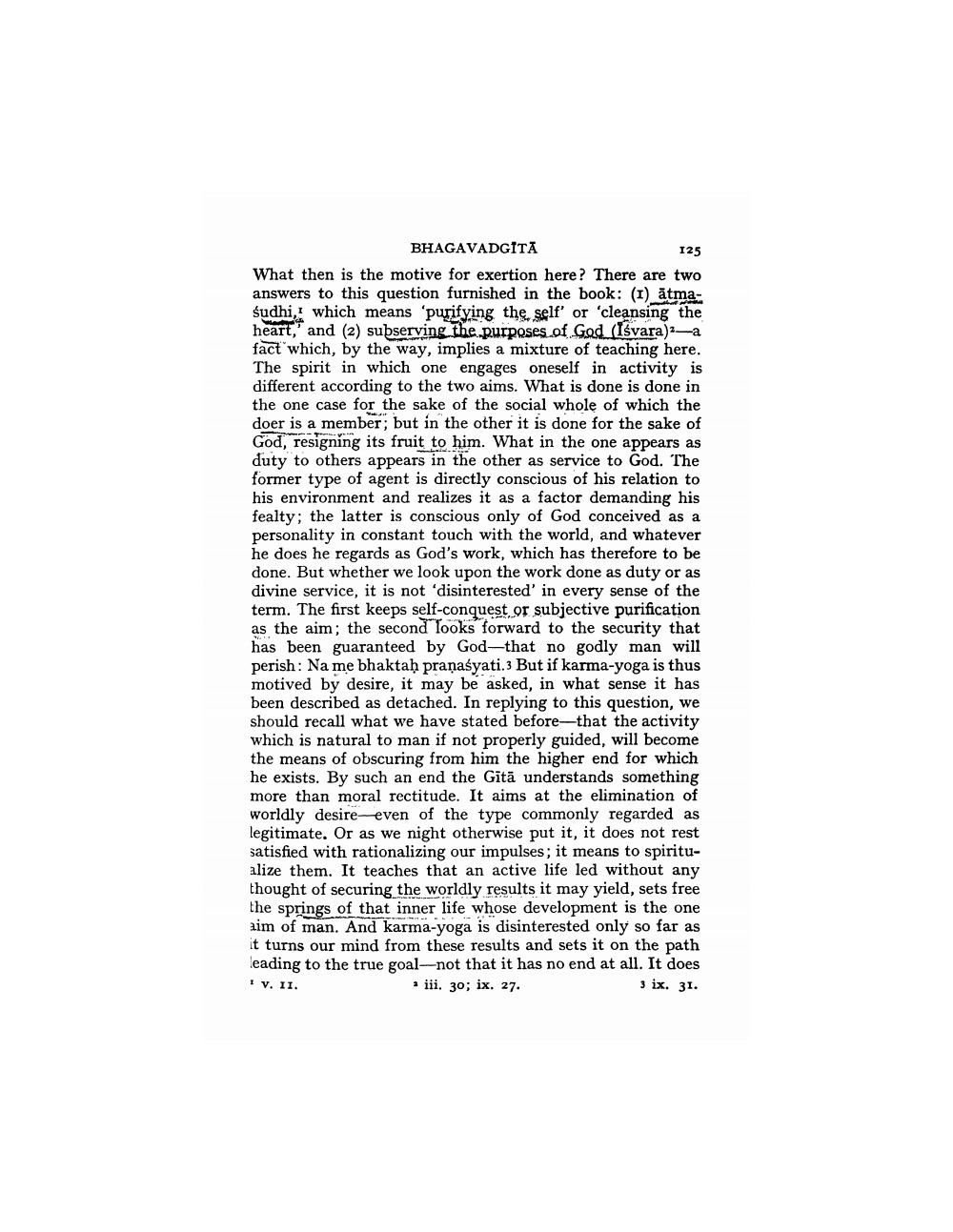________________
BHAGAVADGITA
125 What then is the motive for exertion here? There are two answers to this question furnished in the book: (1) atmasudhi, which means 'purifying the self' or 'cleansing the heart," and (2) subserving the purposes of God (Isvara)2-a fact which, by the way, implies a mixture of teaching here. The spirit in which one engages oneself in activity is different according to the two aims. What is done is done in the one case for the sake of the social whole of which the doer is a member; but in the other it is done for the sake of God, resigning its fruit to him. What in the one appears as duty to others appears in the other as service to God. The former type of agent is directly conscious of his relation to his environment and realizes it as a factor demanding his fealty: the latter is conscious only of God conceived as a personality in constant touch with the world, and whatever he does he regards as God's work, which has therefore to be done. But whether we look upon the work done as duty or as divine service, it is not 'disinterested in every sense of the term. The first keeps self-conquest or subjective purification as the aim; the second looks forward to the security that has been guaranteed by God-that no godly man will perish: Na me bhaktaḥ pranaśyati.3 But if karma-yoga is thus motived by desire, it may be asked, in what sense it has been described as detached. In replying to this question, we should recall what we have stated before-that the activity which is natural to man if not properly guided, will become the means of obscuring from him the higher end for which he exists. By such an end the Gītä understands something more than moral rectitude. It aims at the elimination of worldly desire-even of the type commonly regarded as legitimate. Or as we night otherwise put it, it does not rest satisfied with rationalizing our impulses; it means to spiritualize them. It teaches that an active life led without any thought of securing the worldly results it may yield, sets free the springs of that inner life whose development is the one aim of man. And karma-yoga is disinterested only so far as it turns our mind from these results and sets it on the path leading to the true goal--not that it has no end at all. It does IV. II. • iii. 30; ix. 27.
3 ix. 31.




